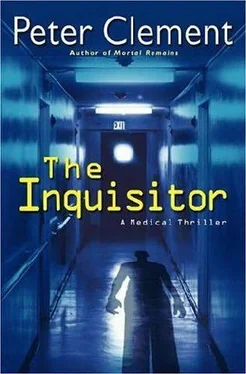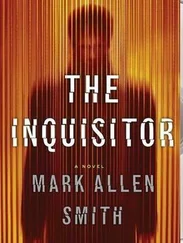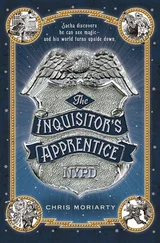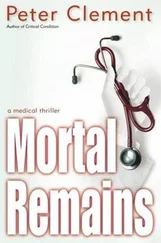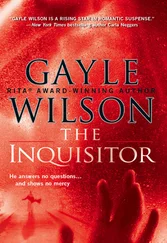It instantly filled with a foamy, pink fluid.
Kir royale, Earl thought, remembering Teddy's own unique turn of phrase to describe bloody pleural exudates when he taught medical students. Its presence meant the virus had attacked the lining of his lungs.
And a quick glance at his biochemistry results posted on the windows told Earl the infection had also damaged his liver, kidney, and muscle tissue.
Multisystem failure.
The faces of two teenage sons whom Teddy had so proudly brought to work from time to time flashed to mind, and Earl's stomach gave a sickening lurch.
Stewart emerged minutes later, having discarded his outer layer of contaminated gear just inside the airtight door, then immediately double-gowned, double-gloved, and masked himself again, including shoe and hair covers.
So many steps, so easy to miss one, Earl thought.
After nurses and doctors in Toronto started getting infected, mostly in ER and ICU despite wearing full protective gear, he and Stewart had sat side by side in each other's units, trying to figure out what extra precautions might prevent the same thing from happening at St. Paul's.
"You look like a pair of Georgia crackers sittin' on the veranda," Thomas had teased them, exaggerating his southern drawl.
Earl had laughed, then fired back, "And I suppose guys from Tennessee never pulled up a couple of chairs on a porch?"
"Ah, but we call them deep thinkers."
"Well, sit yourself down, Mr. Deep Thinker, and help us out."
Within fifteen minutes the three of them had identified a half dozen obvious breeches, from masks being improperly tied to people scratching their heads or raising their goggles and rubbing their eyes. Around infected patients during airway procedures- the spray zone, they called it- one cough and the virus could land on hair, eyewear, shoes, anywhere. If staff took off their gloves first before removing head and footwear, or if they retied a lace before taking off their gloves and then went home and pulled off their shoes, or did any of a number of variations of the same scenario, the SARS virus could end up on their fingers.
"Then it's pick your nose and die," Thomas had drawled, driving the point home to anyone who disputed the possibility. The phrase became their watchword in a campaign to heighten people's vigilance against contaminating themselves.
Teddy Burns had been the latest proof that they hadn't done enough.
"What are his chances?" Earl asked when Stewart finished changing.
The weariness in Stewart's gaze trebled. "I don't know." He pulled Teddy's chart from a wall slot beside the test result sheets and flipped to the progress notes. "Did you hear the latest rumors out of the CDC?" he asked while scribbling a few lines to describe what he'd done. "That intensive care and emergency staff will have to wear Stryker suits all the time?"
Earl's heart sank. Critical care workers across North America had been dreading it might come to that.
Stewart was referring to the outfits with self-contained oxygen supplies that personnel in level four virology labs or investigators at the hot zone site of a virulent outbreak would wear. "Space suits," the residents called them. The thought of ending up in one as a part of the new normal for ER left Earl feeling defeated. Gloves and masks created barriers that were distancing enough, but at least he could still speak to those under his care, allay their fears with the sound of his true voice. But to confront already frightened patients while dressed like something out of a science fiction movie and talk to them with the muffled tones of a voice coming through a completely enclosed hood- that tore it, stripped the final human touches from the profession he loved. People like Teddy Burns would die in total isolation, barely able to see, feel, or hear the ones taking care of them.
Earl hesitated, not sure this would be the best time to bring up his own problem.
"Out with it, Earl," Stewart said, but didn't look up. "What do you want?"
"I need a favor about the Matthews case."
Stewart's pen stopped in midstroke. "Oh?"
"Yeah. I just came from her post. The gross showed tumor as expected and no surprises." He handed over the folder. "These are the morphine levels found in her blood, and the resuscitation team's observations, including an estimated time of death. The rest are lab reports, nursing notes, the times of the injections and the doses. Plus her height and weight."
"So?"
"I want you to calculate backward and figure out the dose she must have received before she died." Complex formulas existed in obscure pharmacology references involving the metabolic breakdown rate and body dispersion quotients for just about every drug in the world. They made the exercise possible, and Stewart read that kind of thing as light reading.
"Wait a minute. You figure someone gave her more than what you prescribed?"
"In a word, yeah."
His eyes narrowed, suspicion displacing fatigue. "Why are you asking me to figure it out? You could do it yourself."
"And Wyatt would immediately demand an independent opinion. He's lit a fire under pathology to have the slides ready early next week, plus scheduled death rounds for the day after. In other words, he's hot to nail me. I need you in my corner on this."
Stewart continued to scrutinize Earl, his brow unfurling slightly. "Yes, of course. I'd be glad to help you out. But who do you suspect screwed up? I've pissed off too many people at St. Paul's already not to check out whom I'll offend this time."
Earl told him his theory about the nurses and the double dose.
Stewart's forehead relaxed the rest of the way. "Count on me."
Evidently Yablonsky and company weren't on his don't-mess-with list.
"But what if I don't get the results you expect?" he asked.
"Then I'm probably screwed." Earl got up to leave, then added, "Oh, by the way, I heard about some other peculiar goings-on up there that I've been meaning to ask you about."
The frown returned.
"Wyatt told me some patients have been complaining they'd had near-death experiences, and when his nurses asked you to look into it-"
"That was bogus!"
"Bogus?"
A flush spread over Stewart's face from under his mask. "Yes. The ones I talked to no more had a near-death experience than you or I."
"I don't understand."
"I told Wyatt it probably resulted from all the media reports my work has generated. The power of suggestion, combined with all those drugs they're on, can make for some pretty potent dreams."
"But Wyatt said that after interviewing some of the patients you accused him of trying to set you up."
His color deepened. "Well, that's not exactly true…"
"And according to the nurses, you stormed off the ward mad as hell."
"Mad? Not at all. Annoyed, maybe, that they'd wasted my time, making me check out crap reports."
Earl's curiosity grew. Stewart never minimized a slight or perceived wrong, yet here he seemed intent on portraying whatever happened up there as inconsequential. "Explain crap."
"The accounts were made up. Trust me, I've analyzed enough true experiences to know the components common to the real thing. These just weren't authentic."
For a man who always had at least ten reasons to support an opinion, and in any discussion would usually machine-gun Earl with them, "Trust me" sounded positively evasive. "Look, I'm not blaming you for anything, Stewart. It's just if you found something screwy going on in Wyatt's department, I want to know about it."
Stewart's ears became glowing red half shells. He took a breath, then exhaled slowly, practicing one of the many self-control techniques Earl knew he'd tried to learn over the years. "Okay, I first got a little steamed and figured Wyatt and the nurses had primed their patients to try to dupe me into believing a bunch of trumped-up accounts."
Читать дальше
